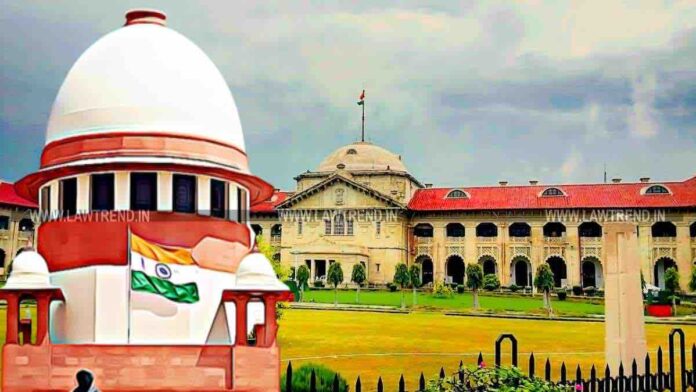The Supreme Court on Tuesday expressed strong disapproval of remarks made by a judge of the Allahabad High Court implying that a rape complainant was responsible for the assault on her. A Bench of Justices B.R. Gavai and Augustine George Masih, while hearing a suo motu matter titled In Re: Order dated 17.03.2025 passed by the High Court of Judicature at Allahabad in Criminal Revision No. 1449/2024 and Ancillary Issues, cautioned against such insensitive and inappropriate observations in cases involving sexual violence.
The comments in question were made by Justice Sanjay Kumar Singh of the Allahabad High Court in an order dated March 11, 2025, while granting bail to an accused arrested for alleged rape. The accused had reportedly met the woman at a bar in Hauz Khas, Delhi. While allowing the bail plea, the judge opined that the woman “herself invited trouble”, a remark that drew sharp criticism from the apex court.
Justice Gavai remarked,
“Yes, bail can be granted. But what is this discussion that ‘she herself invited trouble etc’? One has to be careful when saying such things, especially on this side (judges).”
The Bench underscored the significance of judicial sensitivity in such matters, noting that justice must not only be done but must also be perceived to have been done.
Solicitor General Tushar Mehta echoed this sentiment, stating,
“How a common person perceives such orders will also have to be seen.”
Background of the Suo Motu Case
The top court’s observations came in a broader context — a suo motu case initiated in response to another controversial judgment by the Allahabad High Court. In that case, the High Court had ruled that actions such as grabbing the breasts of a child victim, breaking the string of her pyjama, and attempting to drag her under a culvert did not amount to rape or attempt to rape.
That ruling, dated March 17, 2025, by Justice Ram Manohar Narayan Mishra, had modified a summoning order against two accused initially charged under Section 376 of the IPC (rape) and Section 18 of the POCSO Act (punishment for attempt to commit offence). The judge held that the acts alleged were insufficient to infer a determination to commit rape and instead directed trial under the lesser charges of Section 354-B IPC (assault or criminal force with intent to disrobe) and Sections 9/10 of the POCSO Act (aggravated sexual assault).
The High Court had observed:
“The allegation… is that they grabbed the breasts of the victim and tried to bring down her lower garment… This fact is not sufficient to draw an inference that the accused persons had determined to commit rape.”
The matter reached the Supreme Court after the organisation We the Women of India brought the ruling to its attention. On March 26, the apex court stayed the High Court’s order, noting a “lack of sensitivity” and emphasizing that the judgment was not merely a product of “spur of the moment” thinking.
Directions and Next Hearing
The Supreme Court had previously sought responses from the Central and Uttar Pradesh governments and appointed Attorney General R. Venkataramani and Solicitor General Tushar Mehta to assist the court in the matter.
On Tuesday, the Bench directed that the matter be listed again after four weeks, stating:
“Let the case be listed after 4 weeks. Let service on respondents be completed.”




